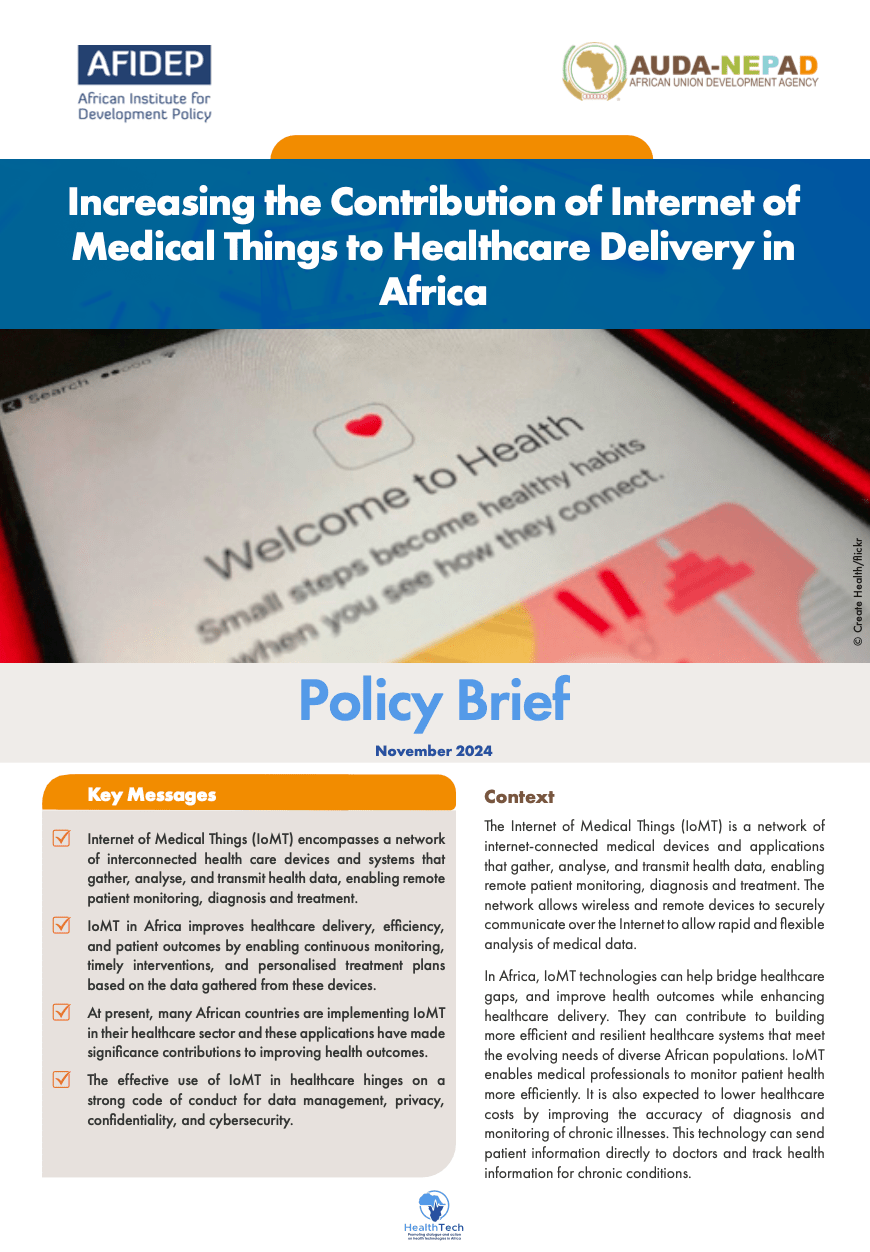The Internet of Medical Things (IoMT) refers to a network of interconnected medical devices and systems that collect, analyse, and transmit health data. This technology revolutionises healthcare by enabling remote patient monitoring, diagnosis, and treatment, offering continuous monitoring, timely interventions, and personalised treatment plans. In Africa, the adoption of IoMT is transforming healthcare delivery, enhancing efficiency, and improving patient outcomes.
Benefits of using IoMT to Address Africa’s Healthcare Challenges
Africa faces significant healthcare challenges, including limited access to quality services due to geographic remoteness, inadequate infrastructure, and a shortage of healthcare workers. IoMT technologies, such as telemedicine and remote monitoring devices, present solutions by facilitating virtual consultations and remote health monitoring. These technologies can help to bridge healthcare gaps, improve outcomes, and build more efficient and resilient healthcare systems tailored to the diverse needs of African populations.
Application of IoMT in Africa
Several successful implementations of IoMT in Africa demonstrate its potential, particularly in increasing access to healthcare in underserved regions. For instance, D-tree International’s mHealth applications support community health workers in managing childhood illnesses, and the MamaOpe Smart Jacket from Uganda aids in the early diagnosis of pneumonia in children. These examples highlight how IoMT can improve healthcare delivery and outcomes in Africa.
Policy Recommendations to Enhance Application of IoMT
To enhance IoMT’s impact on healthcare in Africa, policymakers should:
- Invest in internet and telecommunications infrastructure, especially in underserved areas.
- Harmonise regulatory frameworks across African countries to ensure the safety, quality, and interoperability of IoMT devices.
- Promote educational and training programmes for healthcare professionals in using IoMT technologies.
- Encourage local innovation and development of IoMT solutions tailored to African healthcare needs.
- Develop ethical guidelines addressing data ownership, consent, and equitable access.
IoMT represents a transformative opportunity for healthcare in Africa, offering cost-effective solutions for improved patient care and healthcare system efficiency. However, widespread adoption also brings challenges related to data privacy, security, and regulatory compliance. Addressing these challenges is crucial to unlocking IoMT’s full potential and advancing healthcare outcomes across the continent.
